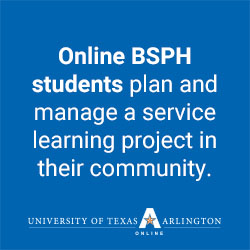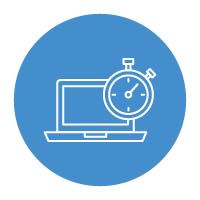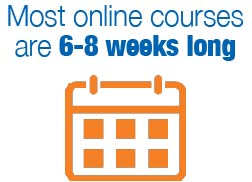Menu
Questions and Answers: Bachelor of Science in Public Health

The Bachelor of Science in Public Health (BSPH) is a degree designed for students who want to be part of improving health in their community, their state, or even the nation as a whole. If you are interested in the work that health departments, government agencies and nonprofits do to keep citizens safe and well, a career in public health might be for you.
BSPH coursework gives students a comprehensive introduction to the field of public health and explores how community health issues can impact individuals and families. You will also learn how outreach, advocacy and public policy can affect health outcomes. Students have opportunities to do research as well and get hands-on experience in tackling public health issues.
Many jobs in this exciting career field involve collaboration and strategic planning, and BSPH graduates know that teamwork makes the dream work in public health. They also understand how public and private partnerships can bring vital resources together in service of community health goals.
What Is a Bachelor of Science in Public Health?

The Bachelor of Science in Public Health degree focuses on the ways systems, communities and individuals can work together to prevent disease or stop its spread. Public health professionals are concerned with prolonging life and promoting healthy living as well, so BSPH degree programs also consider issues of health and safety from a variety of perspectives.
BSPH courses emphasize the importance of environmental, workplace and consumer health too, as well as the role advocacy and politics can play in public health decision-making. The comprehensive education that a public health degree offers ultimately helps students understand how communities shape and respond to health issues and achieve positive health outcomes.
– Dr. Becky Garner, UTA BSPH Program Director
What Can I Do With a BSPH Degree?
A bachelor's degree in public health can prepare you for a wide range of jobs and career opportunities. Here are a few ideas about different roles you could play as a public health professional, depending on your goals and interests.
- If you want to work closely with individuals and families, consider a job in direct service. You might work as a nutrient and behavioral lifestyle advisor, health education specialist, substance abuse treatment coordinator, community clinic manager or children's health advocate.
- If you like research and analysis, think about joining a public health department or working in a clinical laboratory. You could pursue a job in health inspection, biostatistics, environmental testing, clinical trial research, or even work for a nonprofit studying global health trends.
- If you are interested in workplace wellness, a career in occupational health could be a great fit. To help others meet their health goals or address job stress, consider the role of corporate fitness program coordinator, health promotion specialist or employee assistance program manager. If you prefer to focus on the job site itself, you might serve as an environmental specialist, hazardous materials inspector, safety officer or industrial hygienist.
- If you want to work on public health systems change or policies that affect large geographic areas and populations, a career in government may suit you. You might do fieldwork or outreach for a county health commission, coordinate health programs for a state agency or rural health bureau, or even serve as a public health analyst for a federal agency.

I am interested in public health because microorganisms are often the underlying cause that can alter public health for better or worse. I am very intrigued by the association and am eager to explore the connection.
—Dr. Joy Jackson, UTA Assistant Professor

I am most motivated by contributing toward the improvement of health through prevention and education, and I am passionate about using and teaching tools that can accomplish these aims.
—Peace Ossom, UTA Associate Director NNLM Center for Data Science and Delivery of Data Services

What Will I Learn in an Online BSPH Program?

You will learn about many different aspects of public health, from the factors that influence the spread of disease to the impact our personal behavior and choices can have on the health of our community. You will also get the bird's eye view of public health, studying the effect that government, industry and the environment can have on each individual's health and wellness.
Many online BSPH courses also feature hands-on research projects that give students additional insight and experience in the public health field. For instance, you might study health disparities between poor and prosperous neighborhoods, interview a local government official about natural disaster response, study mental health and homelessness, or compile data on rates of disease and disability in a specific population.
UTA's accelerated online BSPH degree program offers working students, busy professionals, and others who prefer learning online an expansive and relevant public health education in a format tailored to their needs. Core public health courses are paired with unique electives and hands-on experiences in the community, allowing students to explore many different career fields.

I have always been interested in inequality. How does it start and what can be done to address issues of inequality? The field of public health is directed at helping those who may not know they need help and those who may know they need help but don't know how or where to get it.
—Doug Garner, UTA Assistant Director Campus Recreation – Adapted Sports and Recreation

I enjoy taking care of people and helping families as a nurse. I enjoy teaching and working with students to help them accumulate knowledge that will support their nursing practice.
—Regina Urban, Clinical Assistant Professor, UTA online RN to MSN program

What Kinds of Courses Will I Take for a BSPH Degree?

Coursework in online public health bachelor's degree programs is designed to provide students with a solid foundation in public health. Core online BSPH courses at UTA cover a range of public health principles, practices and issues, and include many opportunities for learning through experience. Electives also allow students to delve deeper into specific areas of interest, for up to 21 hours of additional course credit.
Online BSPH courses at UTA cover topics such as:
- Public health systems and populations
- Health disparities and contemporary health issues
- Urbanization's impact on people and the environment
- Epidemiology and disease control
- Diet and nutrition
- Global health
- Women's health
- Scientific concepts and research methods
- Advocacy, leadership and strategic planning
- Informatics and data collection
- Ethical standards and practices in public health
- Emergency preparedness and management
- Public health education, literacy and communications
- Social, cultural, economic and political aspects of health
Online BSPH students also participate in career readiness learning experiences as part of coursework, coordinated through UTA Career Services.

Each of our classes has some type of experiential learning or team-based learning activity as part of the curriculum so that students are required to practice the actual skills and competencies that they're going to need for the public health workforce.
—Dr. Becky Garner, UTA BSPH Program Director
Is the BSPH Degree Good for Pre-med Students or Nurses?
Yes. A solid foundation in public health studies is valuable for students preparing to enter any medical specialty, and nurses can see significant career benefits as well. Whether you are on your way to becoming a physician or an RN, or you are finishing the bachelor's degree you need to pursue an advanced practice nursing degree, the immersive public health training you get in a BSPH program can lead to more and better opportunities in your career.
What's Required for Admission to an Online BSPH Degree Program?
Every online BSPH program has its own admission policies, and requirements for entering the major. Some schools only admit students once they have finished all of their core undergraduate courses, meaning math, science, history, English and other general education coursework all students must take to earn a bachelor's degree. Other schools allow students to start public health courses earlier, once they have completed a certain number of credit hours with a passing grade.
To begin the admission process, all programs require a completed application for admission and official transcripts from all colleges and universities previously attended. Applicants may have to meet a minimum GPA standard as well. Some schools request SAT or AP test scores and a personal statement or application essay, or a resume demonstrating previous paid or volunteer work in a public health field.
You can learn more about the UTA admissions process at the BSPH online program website.
Is School Accreditation Important for Public Health Degrees?
Yes, because accreditation is a review process that examines all aspects of a school's educational approach and operations, looking at everything from faculty credentials and classroom technology to financial practices and graduation rates. Universities that earn regional accreditation go through some of the most rigorous evaluation.
Attending an accredited school benefits you in many ways that may not be obvious but are important both during and after your time as an undergraduate. Here's why your school's accreditation status matters:
- Federal and state financial aid programs are only available to students who attend accredited institutions. These include all student loans, grants and work study opportunities funded by the government.
- Credit hours earned at unaccredited schools may not transfer to an accredited college or university.
- Degrees earned at unaccredited schools may not be accepted for admission to master's and doctoral programs in public health or other academic disciplines.
- Some employers require job applicants to have a degree from an accredited school or program, and this is often the case in fields such as healthcare.
UTA is proud to be regionally accredited by the Southern Association of Colleges and Schools Commission on Colleges (SACSCOC).
Will Employers Respect My Online BSPH As Much As a Regular Degree?
Most public health employers are aware that graduates of online BSPH programs are just as well-prepared as those who earned their degree on campus. Some online students may even have more field experience due to the schedule flexibility that online degree programs offer and their emphasis on community-based projects.
Inside Higher Ed reports that 52 percent of American college students were already taking college courses partially or fully online in 2020, prior to the COVID-19 pandemic. It's now common for students in all kinds of academic disciplines to earn their degree 100% online.
What Is the Career Outlook for BSPH Graduates?
Public health is a profession with a broad scope, and the number of different jobs the field encompasses is significant. Therefore, the U.S. Bureau of Labor Statistics (BLS) divides the public health sector into several different occupational categories for the purpose of forecasting job growth in America, primarily community and social service, healthcare and life, physical and social science.
BLS projects steady job growth in each of these occupational categories through 2030, with the greatest gains in healthcare. Faster-than-average job growth is also expected in the following areas of public health practice.
Source: U.S. Bureau of Labor Statistics
There are many other great ways to use your public health degree as well, and sometimes the best information about hiring and career prospects comes from people already doing the job that you want. To learn more about the career outlook for public health from working professionals in the field, visit the American Public Health Association and check out its Careers in Public Health newsletter.

The information from the BSPH degree can translate into many different careers, here and in other parts of the world.
—Dr. Beckey Crow, UTA Clinical Assistant Professor

What Are Some Typical Jobs for BSPH Graduates?
Every aspect of public health is a bit unique, both in pay scale and job opportunities for new graduates. However, let's look at one of America's largest and most populous states as an example of what's possible with a BSPH degree.
Here are some of the entry-level and early-career public health jobs you can get in Texas.
*May require professional certification after hire or as a condition of employment
| Position |
|---|
| Safety Consultant* |
| Industrial Hygienist* |
| Public Health Nutritionist* |
| Public Information Officer |
| Public Health Specialist |
| Emergency Management Coordinator* |
| Environmental Scientist* |
| Health Education Specialist* |
| Behavioral Health Case Manager |
| Water Treatment Specialist* |
| Healthcare Advocate |
| Disease Intervention Specialist |
Aside from pay and benefits, many jobs for BSPH graduates also come with specialized training that can continue to grow your skills and knowledge and help you earn more down the line. And if you are required to earn a professional certification as a condition of your employment, remember that those kinds of credentials can also add to your professional value over time, helping boost your salary as you build your career.

We encourage our students to put themselves out there, to get out of their comfort zone, and to fully engage in the coursework so that they can be ready, not just to apply for jobs, but to be competitive in the job search process.
—Dr. Becky Garner, UTA BSPH Program Director
How Will I Know Which Certifications I Need to Get a Job?

As you explore different public health professions in BSPH courses online, you will also learn about the types of certifications you may need in certain career fields, as well as those you may be eligible for with a few years of experience.
Certification requirements for some jobs vary by state, and some states also have their own processes for certifying specific public health workers. If you want to be a food service health inspector in the Lone Star State, for instance, you'll need to be certified by the Texas Department of Health and Human Services.
Here are a few examples of certifications BSPH graduates can pursue based on the jobs they do or the ones they want. Just follow the links below to get familiar with how public health certification processes work and what their general requirements are.
- Certified Health Education Specialist (CHES)
- Community Health Worker (CHW)
- Certified Industrial Hygienist (CIH)
- Associate Emergency Manager (AEM) or Certified Emergency Manager (CEM)
- OSHA Hazardous Waste Operations and Emergency Response (HAZWOPER)
- Certified Clinical Research Professional (CCRP)
The professional trade organization for your public health career field can also help you learn more about certifications, including which ones might be right for you.
Can I Sit for Professional Certification Exams Before I Finish My Degree?
In some cases, yes you can. Just be sure to consult your professors about your plans to pursue certifications while studying online. Taking this step will help ensure you have the right experience and preparation to qualify and pass.
Some BSPH programs even offer courses that will get you ready for specific certifications as part of the learning experience. At UTA, the course KINE 3357 - Physical Activity and Public Health prepares students to sit for the Physical Activity in Public Health Specialist (PAPHS) certification exam offered by the American College of Sports Medicine.
Is an Online BSPH Degree the Most Affordable Option?

Often it is, when compared with on-campus BSPH degree programs. And if affordability is a priority, it's also important to understand the difference between public and private schools when it comes to the cost of a BSPH education.
Tuition at private colleges and universities tends to be higher regardless of whether you are studying in a traditional or online program. Typical tuition costs for an on-campus BSPH at a private school can run $1300 per credit hour, and some programs charge more than $1800 per credit. Tuition for an online BSPH degree at a private school is less expensive, but can still run about $500-$600 per credit hour.
Public schools are more affordable overall, and their online BSPH programs usually beat the on-campus programs in cost per credit hour. However, online tuition at some schools can still top $500 per credit.
Earning your BSPH online at UTA costs only $315 per credit hour, and the accelerated degree program also helps you finish school faster, saving both time and money.
Can I Get Financial Aid If I Study Online?
Yes, online students can get financial aid just like traditional students do. Check out the U.S. Department of Education's Guide to Student Aid to learn more. And don't forget to fill out your FAFSA by the deadline set by your school, so a financial aid officer can determine your eligibility for federal and state aid programs.
Can I Use My Military Education Benefits to Study Online?

Your academic program or school must be accredited to qualify, but otherwise you should be able to use your military education benefits to earn your bachelor's degree online. You can apply for the funding at eBenefits, the joint U.S. Department of Defense and Department of Veterans Affairs site where service members can also manage their housing, pension, health insurance and other forms of military assistance.
UTA's Office of Financial Aid and Scholarships works closely with all students who are veterans or active military to ensure they can get the most from their military benefits and achieve their educational goals.
Visit the UTA veteran services website to learn more.
Can I Finish My BSPH Degree Faster Online or on Campus?

Online degree programs are designed for accelerated learning, so they do allow students to finish their degree more quickly than a traditional BSPH on campus. However, online learning can also be tailored to fit each student's preferences when it comes to the pace of study.
If you are motivated to get your BSPH degree as soon as possible and get started on your public health career, online courses can definitely accommodate your need for speed. But if you are busy at work, overscheduled, or just want more time with the family than full-time BSPH study allows, online courses can also offer the flexibility you need to earn a degree.
UTA's online BSPH program features multiple course start dates each year. So whether your plan is to move toward graduation slow and steady or power through and hit the job market, you can get a BSPH degree on your schedule.
How Many Hours a Week Should I Study for an Online BSPH Course?

The answer may depend on how much you normally study, and if it's usually enough to get the grades you want. For example, if you normally spend 10-15 hours a week on a three-credit course — from attending class to reading the textbook, studying and doing homework — you'll probably want to devote at least that much time to your online course.
Setting aside 3-5 study hours each week for every hour of BSPH course credit you're taking is a good rule to follow in general, and don't forget to make time to check in with your professor too. Courses that are more difficult may require more hours or effort, but learning online makes it easy to adjust your study time to your needs and schedule.
Are Online Courses Shorter Than Face-to-face Courses?

Yes. Online learning is compressed to help students move through material much faster than they could in a regular 16-week semester on campus. Most online courses run 6-8 weeks on average, though they can be as short as four weeks. Internship or practicum courses may run longer in some online BSPH programs, to ensure students have time to complete the number of field hours required.
How Can I Get My BSPH Degree While I Have a Full-time Job?

It can be very challenging to work and go to school at the same time, especially if your job is quite demanding or you have a family to consider. But if this is your situation, online education was created for you. When you never have to come to campus, much less spend your precious free time circling a remote university parking lot hoping to snag the last spot, it can free up a lot more time for studying and learning. Online, you can go to class anywhere you have a laptop and an internet connection.
If you're stressing about how to handle a full-time job and a degree at the same time, here are some tips for making it work.
- Set your priorities, and let people know what they are. Decide how and when school fits into your life, and talk to your family and friends about it. Tell them why you might have to say no to social engagements or hang-out time when you need to study. But do make time for fun as well, and for people who can give you the support you need.
- Work closely with your employer. Help the company or organization that you work for understand why getting your BSPH degree is important. Keeping your boss in the loop helps ensure that your determination and professionalism in handling both work and school will not go unnoticed. It could even earn you some schedule flexibility when you have a big exam coming up or a final project deadline to meet.
- Look for natural intersections where school and work can merge in a productive way. Seek opportunities to share new information or concepts you are learning with co-workers, like giving a presentation on a subject with shared relevance. Or, use a school project to help address a key challenge in the workplace or to do research that can benefit your team. This can help co-workers and supervisors stay invested in your academic success.
Are You Sure I Don't Have to Come to Campus?
Yes. When you study in a BSPH program that's 100% online, there's no need to come to campus.
However, many BSPH courses do require you to get out in your own community and engage with people who are on the front lines of public health. The perspective you can gain from completing hands-on assignments and projects in the field is an important part of the BSPH experience, and the skills you learn can prove valuable in your own public health career.

My students are interviewing undercover policemen, they're interviewing school district dietitians, they're interviewing nurses, doctors, dentists, public health workers, firemen. ... They're going and interviewing people to be able to get a first-person perspective of what it's like to be out in the field helping promote and improve the health of a community.
—Dr. Becky Garner, UTA BSPH Program Director
What About Graduation — Do I Get to Walk Across the Stage?

At UTA, you do! Even though online UTA BSPH students are never required to come to campus, many do so for graduation. Donning the cap and gown and receiving your diploma in person is a great way to celebrate your achievement with family, as well as your classmates and professors.
If walking at graduation is important to you, be sure to check with the online BSPH programs you are thinking about to make sure it's an option for online education students.
I've Never Taken College Courses Online for Credit — What Should I Expect?

Each of your online courses will have most of the same elements that a face-to-face course would have, including a professor, a syllabus that outlines readings, assignments, projects and other deadlines, and a way for you to turn in your homework and take tests or quizzes. It will also have a discussion board where students post and respond to topics, and you can even contact your professor or other students in the virtual classroom.
The key difference with online courses is that you will need to pace and motivate yourself to complete the coursework on your own. While your professor will be present through lectures, assignments, grading and feedback, and your conferences via email, video chat or other means, you will not have the consistent routine of attending class to keep you focused on deadlines, as you might in a face-to-face course.
This also means more freedom to structure your study time as you please, however, and work in your online course whenever it suits you best.
Can I Meet My Classmates in Online BSPH Courses?

Yes, there are actually a number of ways to meet your online classmates in a BSPH course. Many online students work or study together and form friendships just as they would if they met face to face in a regular classroom. If you want to interact with your fellow students, you can:
- Use the discussion board to introduce yourself and participate in the conversations about readings and assignments that go on there during the course.
- Get to know other students by working together on group exercises, projects or presentations.
- Form a study group that meets using video chat, on social media, or elsewhere online.
- Suggest a live-streaming review session with your professor before a test, where students can gather online and ask questions.
- Attend your graduation ceremony, where you can hang out with your BSPH classmates in person.
How Do Online Professors Communicate With Students?
Online professors work and communicate with students in a variety of ways. In addition to the instructional components professors create, such as video lectures, slides or written assignment guidelines for all students, they spend time giving each student some coaching and direct feedback. An online professor may offer written comments on your writing, feedback on a project or presentation, or one-to-one guidance in any element of the course where you need more help.
Students often meet with their professor online using tools such as video chat, and some professors are also open to communicating with students by text or phone as well. And don't hesitate to ask when you need help from your online professors — they want to know how things are going for you in their course, and they can help you find the resources or answers you need to do well.

I have spent many years as a student and now find myself on the other side of the (digital) classroom hoping to share my experience, enthusiasm and dedication to the field of public health with the next generation of public health professionals.
—Dr. Stephanie Spohr, UTA Instructor
Do Online Professors Have Office Hours?
Office hours are not that common in online courses because online students and professors aren't limited to meeting on a set schedule or in a single location. If you need assistance or some time with your online BSPH professor, just send an email or request a meeting anytime. You can also post a note for your professor on the discussion board, if your issue concerns assignments or deadlines that other students might also have a question about.
What If I Need Extra Help With Assignments or Research, or My Writing?

Online students benefit from academic support resources such as online tutoring and remote library access, and many BSPH programs offer this type of assistance. However, specific resources will vary by school. Before applying, be sure to research schools you are considering to learn more about whether the support services you need are offered and made available to students online.
With a large online student population, UTA has extensive experience providing academic support services for learning online. For example, students in the online BSPH program can work with the UTA library remotely and get assistance with research direct from a librarian over live chat. The UTA Writing Center also provides one-to-one tutoring sessions online for BSPH students.
What Are the Minimum Technology Requirements for Online Courses?

Before beginning a degree program, it's a good idea to review your technology setup and make sure it's in good shape for online courses. Here's what you'll need to get started:
- A desktop, laptop or tablet computer
- Internet access and an up-to-date web browser
- An email account (though you will also be given a school email address upon admission)
- Video chat capability (webcam and microphone)
- Streaming video and audio capability
- Word processing, spreadsheet, and presentation software or apps
These are the basics, but each school has its own technology requirements. Be sure to check with your program for further details before you take your first course online.
What If I Have a Technical Issue With My Course or My Computer?

Online BSPH programs provide help for students who are having trouble with the functionality of their course or who need guidance in how to use different elements of it. Most schools also have tech support to help online students resolve computer issues.
UTA's technology support service is available to all students enrolled in online courses and includes tutorials, troubleshooting and live, real-time assistance.
What Makes UTA a Great Place to Study Public Health?
UTA's accelerated online BSPH degree is perfect for students with a passion for public service who need the kind of schedule flexibility that an on-campus degree can't accommodate. It gives working students and others who prefer to study online a fast, affordable way to earn their degree and go on to a career in public health.
UTA's online BSPH degree program is designed to meet core competencies for public health education established by the Association of Schools and Programs of Public Health (ASPPH) and the Council on Linkages Between Academia and Public Health Practice, as well as Council on Education for Public Health (CEPH) accreditation criteria. The online BSPH program is also a member of the ASPPH Undergraduate Public Health and Global Health Education Network.
Why Should I Get My Online BSPH Degree From UTA?
UTA's online BSPH degree program was developed by faculty in the College of Nursing and Health Innovation, regarded as one of the nation's early pioneers in online education for health professionals.
The quality of the BSPH faculty and curriculum and the program's low tuition rate also make UTA an excellent choice. In addition, UTA is consistently ranked among America's top schools for social mobility, highlighting the university's diverse undergraduate student body and commitment to college access for all.
The public health workforce needs passionate college graduates who are prepared and ready to apply their knowledge to our most pressing health issues, and online BSPH students at UTA are laying the groundwork for the healthier communities they envision.